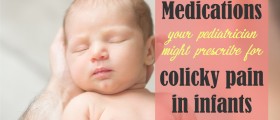
Genetics do play a role in lactose intolerance, so some groups could be said to be at a higher risk if you are Asian American, you have the highest risk of a baby with lactose intolerance, for instance. Hispanics and people of Jewish origin are also at a higher risk than some other groups, with around 75 percent being lactose intolerant. Very few babies are born with this problem, but it can happen, if both parents carry the gene.
Some medications can also temporarily cause a deficiency in the enzyme needed to digest lactose. Here are some symptoms to watch out for:
Constant diarrhea Abdominal cramping Abdominal bloating Gas Crying/irritable baby Baby fussing at the breast Baby doesn't gain weightIf your baby has these symptoms, or some of them, it is certainly wise to take your baby to the doctor to discuss the problems you have encountered. Every infant has tummy cramps and wind, cries sometimes, is irritable, or fussy. Babies also don't grow in an even pattern, and may not gain much weight during certain periods. It is when these symptoms are consistent and there is no change that action is required.
Babies that are found to be truly lactose intolerant will need a special, lactose free infant formula rather than breastfeeding or receiving formula based on cow's milk. Some food allergies or digestive problems can also provoke similar symptoms, so it is important to find out what is going on.

















Your thoughts on this
Loading...